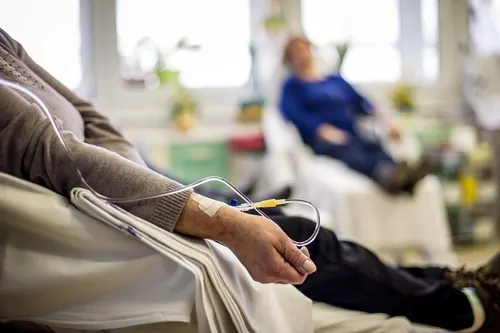
As we head into the month of October, we tend to see pink ribbons everywhere in support of breast cancer research and breast cancer patients. Cancer is one of those scary words nobody wants to hear, and it can cause feelings of uncertainness and weariness of what treatment will bring. While there are sure to be many thoughts racing through your mind following any cancer diagnosis, there’s one thing you may not immediately think of — seeing your dentist in Long Grove. However, this visit, and follow up visits, can actually help make cancer treatment more successful.
Chemotherapy
The cancer treatment we tend to be most familiar with is chemotherapy. Chemotherapy has been used for many years and can help kill cancer cells. However, it certainly doesn’t come without side effects. While these side effects can affect any area of the body, there are certain ones that directly affect the mouth. Sometimes these side effects are so serious that your medical team may decide to temporarily stop treatment until the side effects are resolved. To help avoid this, it’s important to see your dentist in Long Grove prior to starting chemotherapy.
Chemotherapy and Oral Health
As we’ve mentioned, chemotherapy can be really effective at killing cancer cells. But it can also harm healthy cells in the process, including cells in the mouth. This damage can affect any part of your mouth from your teeth to the soft tissues such as your gums and the glands that create saliva. Some common oral health side effects of chemotherapy include:
These side effects can happen to anyone, and they do tend to vary from person to person. Make sure you talk with your cancer treatment team as well as your dentist in Long Grove during treatment so any side effects are caught and treated early. If they’re not, some infections or side effects can be so severe they’ll cause a delay or pause in your cancer treatment.
The Importance of Regular Dentistry
Seeing your dentist every six months is recommended for everyone, but those undergoing cancer treatment may need to visit more often. After all, your dentist in Long Grove is a key part of your cancer treatment team, and seeing them regularly can help avoid or keep serious side effects at bay. Additionally, if you see your dentist before treatment begins, you can rest assured that you’ll start treatment with an already healthy mouth, reducing the risk of complications. If you or a loved one have been diagnosed with cancer, schedule an appointment with your dentist, ideally one month prior to beginning treatment.